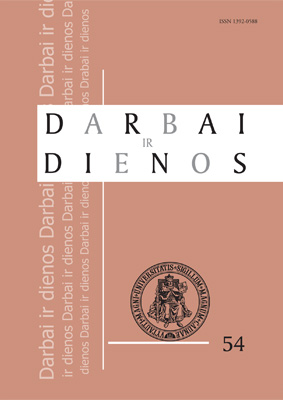Typology of Adults’ Questions and the Development of Children’s Communicative Competence
Typology of Adults’ Questions and the Development of Children’s Communicative Competence
Author(s): Victoria V. KazakovskayaSubject(s): Cultural Essay, Political Essay, Societal Essay
Published by: Vytauto Didžiojo Universitetas
Keywords: adults; children; communication; competence; suaugusieji; vaikai; kalba; kompetencija
Summary/Abstract: The way little children learn to speak is unique in many respects, and to describe the way children acquire their first language one needs to understand how they think and operate. Children do not learn their first language consciously; rather they transform their varied experience, including interaction with mothers, into knowledge of languages and an ability to speak them. A manifold system of skills that enable a child to effectively participate in all types of communication manifests itself in speech. In this paper we will use the term communicative competence to denote such a system of skills. Acquisition of the latter is an intricate process deserving a thorough investigation which would enable to understand the logic and structure of communicative competence. This, in turn, would allow us to identify canonical forms of utterance and discourse and reveal basic features of intercourse, including grammatical patterns of the dialogue. Straipsnyje nagrinėjama ankstyvoji vaikų kalbinės kompetencijos raida, apimanti kalbinių ir komunikacinių (taip pat dialogo) įgūdžių įgijimą. Kalbinei elgsenai ypač svarbūs suaugusiųjų užduodami klausimai, kurie veikia komunikacines vaikų kompetencijas (dialogą ir kalbą). Tyrime pateikiama dialogo dalių tipologija ir raida. Analizuojami ilgalaikiai garso ir vaizdo įrašai bei dienoraščiai iš rusų kalbos tekstyno.
Journal: Darbai ir dienos
- Issue Year: 2010
- Issue No: 54
- Page Range: 251-265
- Page Count: 15
- Language: English

